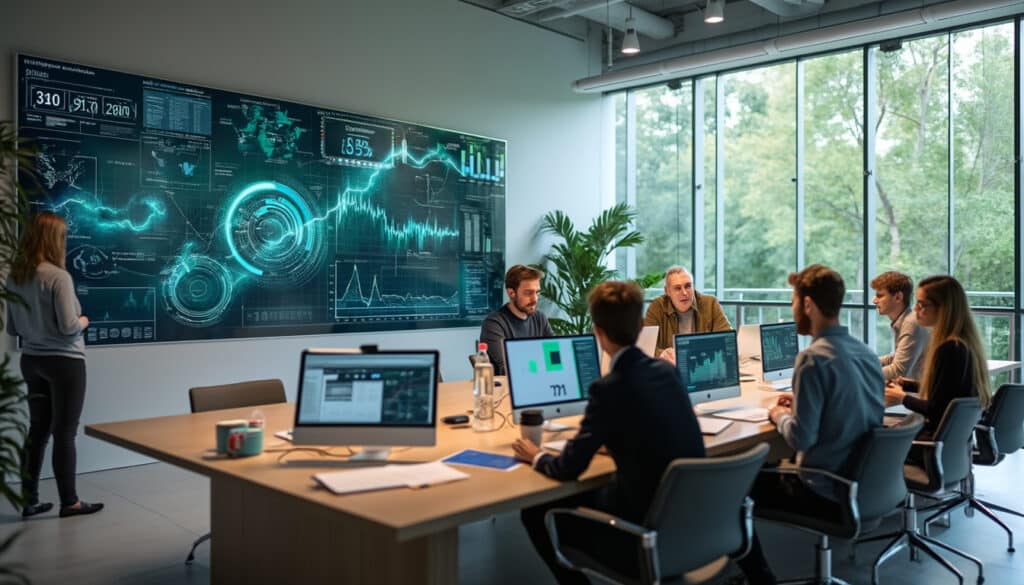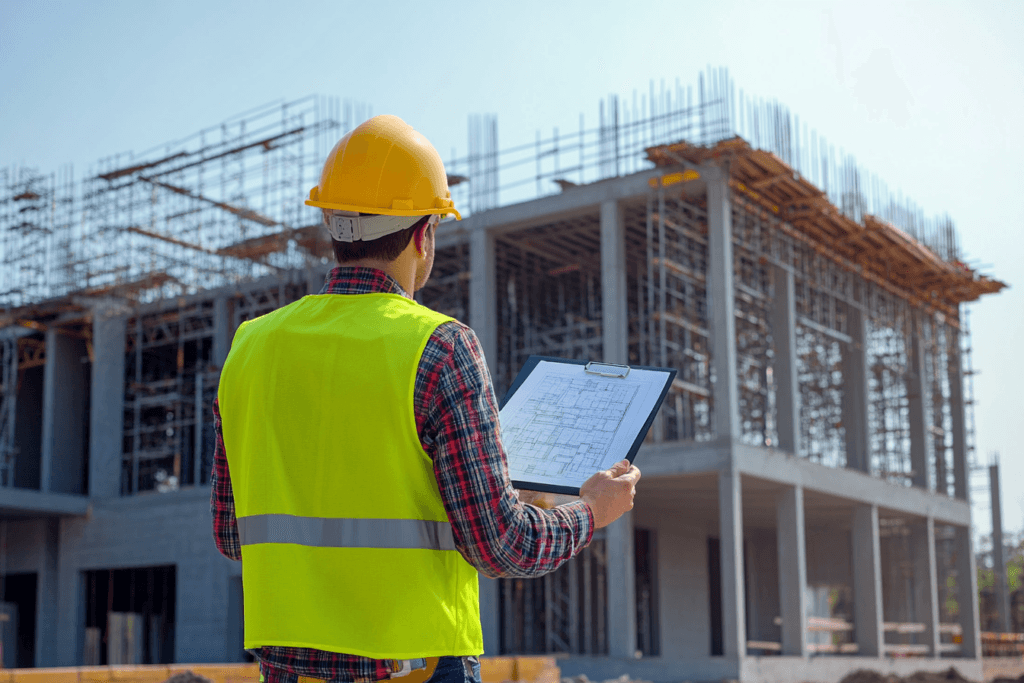Imagine a simplified management of water and gas, free from the hassles of traditional infrastructures. The Swedish group Netmore is revolutionizing the utility sector with the launch of its new on-demand metering service for water and gas. With Metering-as-a-Service (MaaS), companies can now benefit from a flexible and scalable solution that integrates LoRaWAN connectivity for optimized resource management.
This innovative service allows for the rapid deployment of smart meters, real-time monitoring of networks, and improved reliability of collected data. By eliminating heavy initial investments, Netmore facilitates the transition to more sustainable and efficient infrastructures, thus addressing the growing needs of European utilities.

The Netmore group innovates with an on-demand metering service for water and gas
In a world where resource management is becoming increasingly crucial, the Swedish group Netmore stands out by launching an innovative on-demand metering service for the water and gas sectors. This initiative is part of a broader commitment to transition to more sustainable and efficient solutions, addressing the current challenges of utilities and the Internet of Things (IoT).
What is Metering-as-a-Service and how does it work?
The Metering-as-a-Service (MaaS) offered by Netmore is a modern alternative to traditional advanced metering infrastructure (AMI) systems. Instead of making large upfront investments in infrastructure, managers can choose a monthly payment model per communicating meter. This model includes maintenance and replacements, thus facilitating the adoption of advanced technologies without the initial financial constraints.
With MaaS, water and gas companies can deploy smart metering solutions more quickly and responsively. This service provides better visibility on consumption, leak detection, and identification of usage irregularities, thus improving resource management and customer satisfaction.
Why is the deployment of LoRaWAN essential for utilities?
The deployment of the LoRaWAN network by Netmore in France marks a significant step in improving connectivity for water and gas utilities. LoRaWAN, with its wide range and low energy consumption, offers an ideal solution for connecting millions of IoT devices. This enables real-time monitoring and more efficient management of critical infrastructures.
By integrating LoRaWAN with existing SCADA systems, water services can not only enhance the functionality of distribution networks but also develop biodiversity and sustainability solutions. This integration is essential to meet the growing needs for visibility and network coverage, while providing a predictive pricing model suitable for large-scale projects.
What are the advantages of Metering-as-a-Service for water and gas managers?
Choosing Metering-as-a-Service presents numerous advantages for water and gas managers. First, this service reduces the initial costs associated with installing advanced metering infrastructures. Furthermore, it allows for faster and more flexible implementation of smart metering solutions, thus addressing the specific needs of each project.
Moreover, MaaS includes ongoing maintenance and replacements, ensuring the reliability and performance of metering systems. This results in reduced service interruptions and improved satisfaction for end users. Additionally, by using MaaS, companies can focus on their core business while benefiting from the latest technological advancements in resource management.
How does Netmore facilitate the transition to sustainable management of water and gas?
Netmore plays a crucial role in the transition to more sustainable management of water and gas resources. By providing smart metering solutions based on LoRaWAN, Netmore enables accurate monitoring and optimized management of distribution networks. This not only contributes to reducing losses and leaks but also allows for better resource allocation.
Netmore’s partnership with major players like Yorkshire Water perfectly illustrates this approach. Together, they build and maintain a robust network coverage, thus promoting more efficient and environmentally friendly usage.
What challenges does Netmore face in deploying LoRaWAN?
The deployment of LoRaWAN in France by Netmore is not without challenges. One of the main obstacles is the need to ensure reliable network coverage in varied areas, ranging from dense urban environments to remote rural regions. Additionally, managing millions of IoT devices requires a robust and scalable infrastructure capable of processing and analyzing large volumes of data in real-time.
Another major challenge is establishing an attractive predictive pricing model for utility managers. Netmore must find the right balance between cost, performance, and flexibility to meet customer expectations while maintaining the economic viability of its services.
What benefits do end users derive from this new service?
End users, namely water and gas managers along with their clients, benefit from numerous advantages thanks to Netmore’s innovative service. For managers, better visibility on consumption and proactive leak detection allows for optimization of resource distribution and reduction of operational costs. Additionally, the maintenance included in the service ensures optimal performance of metering systems without interruption.
For consumers, this translates into more accurate and fair billing, as well as an improvement in service quality. By quickly detecting leaks and irregularities, managers can intervene more rapidly, thus minimizing inconveniences and material losses. Finally, more efficient resource management contributes to environmental preservation, benefiting society as a whole.
What future projects and extensions does Netmore envision?
The Netmore group does not intend to stop there. With the acquisition of LoRaWAN network operator Everynet, Netmore reinforces its global presence and its ability to offer even more extensive and efficient solutions. This expansion is accompanied by technological developments aimed at integrating new features and further enhancing the performance of IoT networks.
Additionally, Netmore is exploring strategic partnerships with other renewable energy players, such as Siemens and Sony, to revolutionize immersive engineering in the industrial metaverse. These collaborations pave the way for significant innovations, strengthening Netmore’s position as a leader in the field of IoT networks and smart metering solutions.
How does Netmore contribute to reducing the carbon footprint?
By facilitating the efficient management of water and gas resources, Netmore plays a key role in reducing its carbon footprint. Better management of networks helps minimize losses and leaks, thereby reducing the amount of wasted resources. Furthermore, the use of advanced technologies such as LoRaWAN allows for optimizing the use of IoT devices, thus decreasing overall energy consumption.
Netmore is also committed to sustainable development initiatives, such as promoting green roofs for biodiversity, thus contributing to ecological projects that promote environmental resilience. These actions are part of a comprehensive strategy aimed at reconciling economic performance with environmental respect.
What testimonials illustrate the success of Metering-as-a-Service?
The launch of Metering-as-a-Service has already received positive feedback from early users. For instance, the partnership with Yorkshire Water has enabled the construction of effective network coverage, facilitating the daily management of water resources. Utility managers have noted a significant improvement in visibility into consumption and a reduction in operational costs thanks to the use of smart meters.
Furthermore, case studies show that companies adopting MaaS benefit from greater responsiveness to leak issues and irregularities, resulting in improved customer satisfaction and resource optimization. These testimonials highlight the effectiveness and reliability of the solutions offered by Netmore, thereby enhancing investor and partner confidence in the services provided.
What are the future technological developments for Netmore?
Netmore continues to invest in research and development to remain at the forefront of IoT technologies. The integration of artificial intelligence and machine learning into its metering solutions will enable forecasting of consumption trends and further optimizing resource management.
Additionally, Netmore is exploring the use of eco-friendly Bluetooth technology through projects like Mercury, aimed at developing low-carbon solutions for the future. These technological developments aimed at improving the sustainability and efficiency of IoT networks demonstrate Netmore’s ongoing commitment to innovation and environmental responsibility.
How does Netmore integrate into the global renewable energy ecosystem?
As a global operator of IoT networks, Netmore integrates seamlessly into the renewable energy ecosystem by collaborating with various stakeholders and participating in large-scale projects. The acquisition of Everynet, for instance, enables Netmore to expand its reach and offer NaaS (Network-as-a-Service) and PaaS (Platform-as-a-Service) solutions on a global scale, thus meeting the diverse needs of international markets.
Moreover, Netmore actively participates in initiatives to promote the use of renewable energies, such as advanced wind turbine projects and innovative energy storage solutions. These efforts help strengthen Netmore’s position as a leader in sustainable technologies while supporting global goals of reducing carbon emissions and promoting clean energies.
Articles similaires
Thank you!
We will contact you soon.














